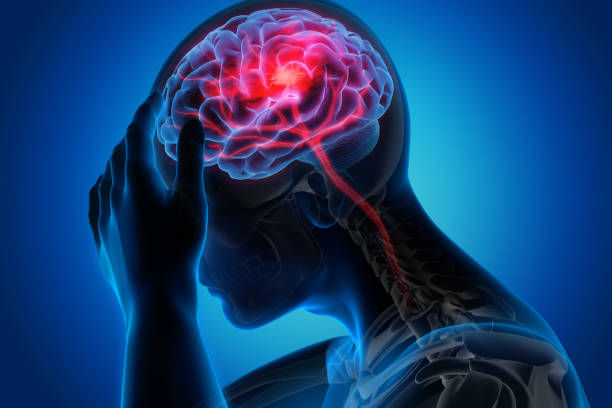
Migraine vs Headache – How to Tell the Difference and Get the Right Treatment
Migraine vs Headache – How to Tell the Difference and Get the Right Treatment
Headaches are common, but not all head pain is created equal. While many people think every head pain is just a simple headache, it could actually be something more serious — like a migraine, which is a neurological condition that requires targeted treatment.
At Curewell Speciality Clinic, our expert Neurologists in Shivaji Nagar, Bengaluru, specialize in diagnosing and treating chronic headaches and migraines with advanced, personalized care. In this blog, we’ll help you understand the key differences between a migraine and a regular headache, and guide you on how to get the right treatment at the right time.
What Is a Headache?
A headache is pain or discomfort in the head, scalp, or neck. It can range from mild to severe and may feel dull, sharp, or throbbing. While most headaches are not dangerous, some types can become chronic or more frequent if left untreated.
Common Types of Headaches:
- Tension Headache: The most common type. Feels like a tight band around the head, usually caused by stress, poor posture, or fatigue.
- Cluster Headache: Severe, sharp pain around one eye, often occurring in patterns or “clusters” over weeks or months.
- Sinus Headache: Pressure-like pain in the forehead, cheeks, or around the eyes, usually due to sinus infections or allergies.
These types of headaches typically don’t involve neurological symptoms and often respond well to hydration, rest, or mild pain relievers.
What Is a Migraine?
A migraine is more than just a bad headache — it’s a complex neurological disorder that can significantly impact daily life. Migraines often last from a few hours to several days and are usually accompanied by multiple other symptoms.
Common Symptoms of a Migraine:
- Intense, throbbing or pulsing pain, often on one side of the head
- Nausea and vomiting
- Sensitivity to light, sound, or smells
- Visual disturbances or “aura” — such as flashing lights, blind spots, or zigzag patterns
- Dizziness, fatigue, or confusion following the attack (sometimes called a “migraine hangover”)
Migraines can be triggered by factors like hormonal changes, lack of sleep, specific foods, stress, or even weather changes. Genetics also play a key role — if migraines run in your family, you’re more likely to experience them.
Key Differences Between Migraine and Headache
Understanding the differences between headache and a migraine is crucial for getting the right treatment. Here’s a quick comparison:
| Feature | Headache | Migraine |
|---|---|---|
| Pain Type | Dull, steady pressure | Throbbing or pulsing |
| Location | Both sides or forehead | Usually one side |
| Duration | 30 minutes to a few hours | 4 to 72 hours |
| Sensory Sensitivity | Rare | Common — light, sound, smell |
| Other Symptoms | Minimal | Aura, nausea, vomiting |
| Response to Treatment | Often improves with OTC meds | May require prescription medication |
If your head pain is recurring, intense, or affecting your ability to function, it may be a migraine — and it’s time to consult a specialist.
When to See a Neurologist for Headaches or Migraines
You should consider seeing a neurologist if you experience:
- Headaches more than twice a week
- Headaches that don’t respond to over-the-counter medications
- Any neurological symptoms such as confusion, numbness, or vision disturbances
- A family history of migraines or neurological conditions
- A sudden, severe headache (which could be a warning sign of something more serious)
At Curewell Speciality Clinic, we take a comprehensive approach to diagnosing the root cause of your pain — whether it’s due to nerve sensitivity, vascular issues, or tension — and provide treatments tailored to your specific needs.
Effective Treatment Options for Migraines and Headaches
Treatment varies depending on the type and severity of your condition. At Curewell Speciality Clinic, we offer personalized plans that may include:
- Acute pain relief medications, such as NSAIDs or triptans
- Preventive therapies for patients with frequent or chronic migraines
- Lifestyle modifications, including better sleep, hydration, and stress management
- Botox injections, approved for treating chronic migraine
- Trigger identification and management, such as keeping a food and stress diary
- Neurological imaging (MRI or CT scans) when necessary for accurate diagnosis
Our goal is to not only reduce your symptoms but also to help you prevent future attacks by identifying and avoiding your personal triggers.
Curewell Speciality Clinic: Your Trusted Neurology Centre
At Curewell Speciality Clinic, we are committed to providing world-class care in the field of neurology and joint pain. Our team of skilled neurologists and headache specialists in Shivaji Nagar, Bengaluru is dedicated to helping you manage migraines and chronic headaches through a combination of modern medicine and personalized care.
Whether you’re dealing with occasional tension headaches or long-standing migraine attacks, we’re here to support you every step of the way.
Why choose Curewell Speciality Clinic?
- Expert neurologists focused on headache and migraine care
- Individualized treatment strategies based on root-cause analysis
- Modern diagnostic tools and therapies, including FDA-approved treatments
- Convenient appointments and a patient-first approach
- Compassionate long-term follow-up care
Final Thoughts: Don’t Let Head Pain Control Your Life
Chronic headaches and migraines can interfere with your daily routine, productivity, and overall quality of life. But you don’t have to live with the pain.
Book a consultation with the neurology experts at Curewell Speciality Clinic today and take your first step toward a pain-free, focused life.

